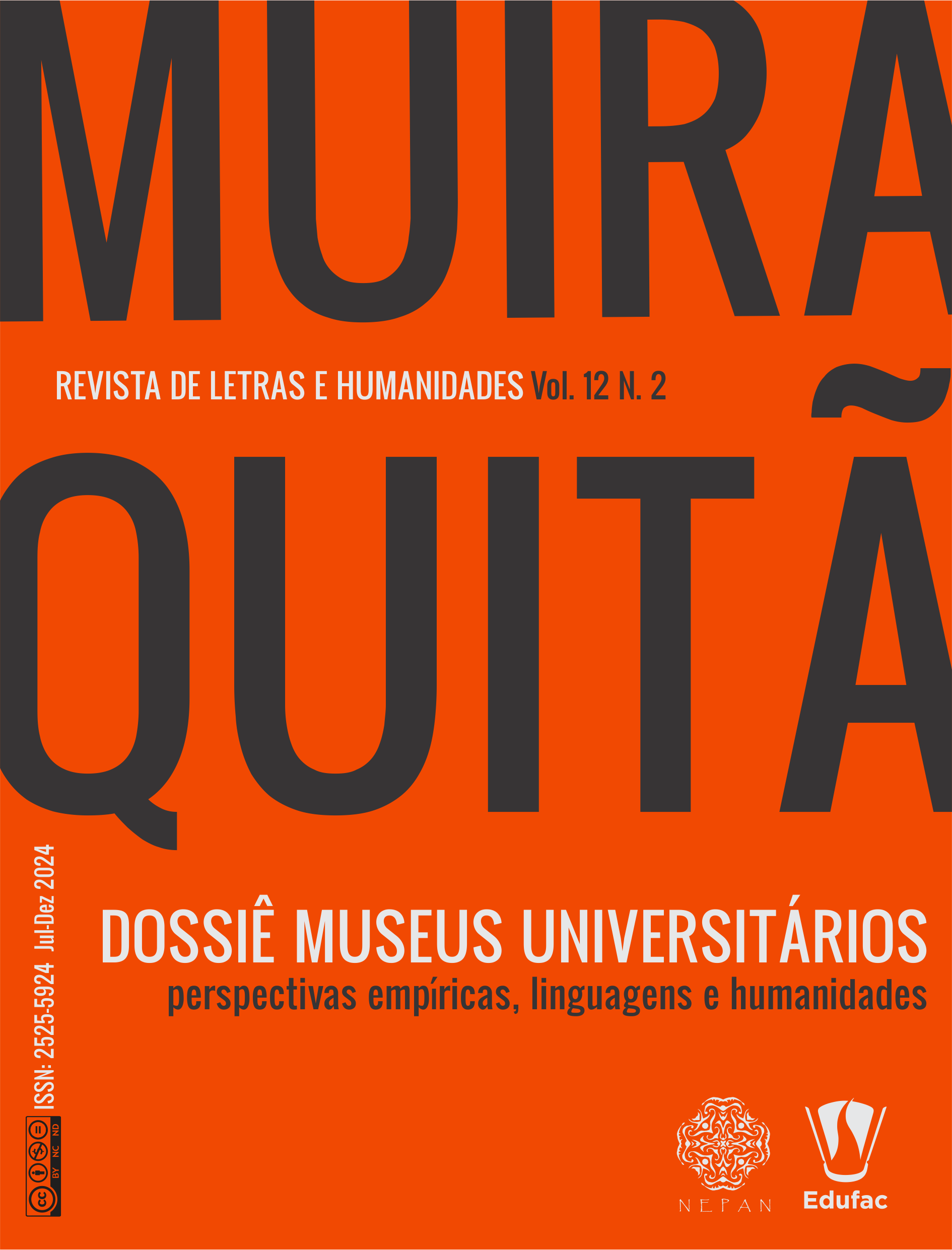Manifestaciones del trauma en Mandíbula, de Mónica Ojeda
DOI:
https://doi.org/10.29327/210932.12.2-14Palavras-chave:
Trauma psíquico. Mónica Ojeda. Mandíbula. Literatura ecuatoriana.Resumo
Este artículo analiza las manifestaciones del trauma en la novela Mandíbula (2018), de la escritora ecuatoriana Mónica Ojeda, utilizando la teoría sobre el trauma en la literatura (Literary Trauma Theory) como marco teórico. Se examina cómo la obra va más allá de la dicotomía tradicional entre narrar o no el evento traumático, proponiendo un espectro más amplio de tipos y manifestaciones del trauma. A través de las voces de los personajes, Mandíbula expone las dinámicas entre la memoria, el lenguaje, el cuerpo y la mente en el manejo y asimilación de las experiencias traumáticas. Asimismo, se explora el papel de la violencia y el miedo como hilo conductor de la historia, revelando cómo el trauma individual y colectivo determina relaciones familiares conflictivas y violentas. Con todo, el análisis destaca que las representaciones literarias del trauma psicológico en Mandíbula son variables, simbólicamente ricas y contradictorias, lo que invita a replantear y ampliar las aproximaciones críticas al trauma en la literatura latinoamericana contemporánea.
Downloads
Referências
BALAEV, M. Trends in Literary Trauma Theory. Mosaic: An Interdisciplinary Critical Journal, Winnipeg, vol. 41, n. 2, p. 149-166, jun. 2008. Disponible en: https://www.jstor.org/stable/44029500. Acceso el 10 de agosto de 2024.
BALAEV, M. The Nature of Trauma in American Novels. Evanston: Northwestern University Press, 2012.
BISTOEN, G. Trauma, Ethics and the Political beyond PTSD. Nueva York: Palgrave McMillan, 2016.
CARUTH, C. Unclaimed Experience: Trauma, Narrative, and History. Baltimore: John Hopkins University Press, 1996.
CARUTH, C. Trauma: Explorations in Memory. Baltimore: Johns Hopkins University Press, 1995.
CREED, B. The Monstrous Feminine: Film, Feminism, Psychoanalysis. 2a edición, Oxfordshire: Routledge, 2023. Disponible en: https://doi.org/10.4324/9781003006756. Acceso el 10 de agosto de 2024.
CBQ. Mónica Ojeda Included in the selection of the 25 best narrators by «Granta» Magazine. CBQ Agencia Literaria, 19 de abril, 2021. Disponible en: https://agencialiterariacbq.com/en/monica-ojeda-incluida-en-la-seleccion-de-la-revista-granta/. Acceso el 4 de agosto de 2024.
GIBSON, L., et al. Trauma and the psychosis spectrum: A review of symptom specificity and explanatory mechanisms. Clin Psychol Rev, vol. 49, p. 92–105, ago. 2016. Disponible en: https://doi.org/10.1016/j.cpr.2016.08.003. Acceso el 5 de agosto de 2024.
HERMAN, J. Trauma and Recovery. New York: Basic Books, 1997.
HUNTER, N. Trauma and Madness in Mental Health Services. New York: Palgrave Macmillan, 2018.
JOHNSTONE, L. Can Traumatic Events Traumatize People? Trauma, Madness and ‘Psychosis’. In: Mark Rapley et al., De-Medicalizing Misery. New York: Palgrave Macmillan, 2011, p. 99-109. https://doi.org/10.1057/9780230342507_8.
KOREYZKY, C. Parole et trauma. L’Hebdo Blog, 17 de marzo, 2019. https://www.hebdo-blog.fr/parole-est-trauma/. Acceso el 20 de julio de 2024.
LOTHE, J. Narrative. In: Colin Davis y Hanna Meretoja, The Routledge Companion to Literature and Trauma. New York: Routledge, 2020, p. 152-61. https://doi.org/10.4324/9781351025225.
MCNALLY, R. Remembering Trauma. Cambridge: Harvard University Press, 2005. https://doi.org/10.2307/j.ctv1pdrpxm.
MARTINSON, D. Trauma-Informed Interventions for People Who Self-Injure A compilation from experts around the nation. California Center of Excellence for Trauma Informed Care, agosto 2011. https://dpi.wi.gov/sites/default/files/imce/sspw/pdf/sswpgshintervene.pdf. Acceso el 24 de julio de 2024.
MENDIOLA, K. La evocación del erotismo fantástico: Breve estudio ginocrítico del terror. Revista Literaria LA COYOL, 2 de noviembre, 2023. Disponible en: https://lacoyolrevista.com.mx/2023/11/02/la-evocacion-del-erotismo-fantastico-breve-estudio-ginocritico-del-terror-mandibula-de-monica-ojeda/. Acceso el 6 de agosto de 2024.
Downloads
Publicado
Como Citar
Edição
Seção
Licença
Copyright (c) 2024 Adolfo Licoa

Este trabalho está licenciado sob uma licença Creative Commons Attribution-NonCommercial-NoDerivatives 4.0 International License.

















